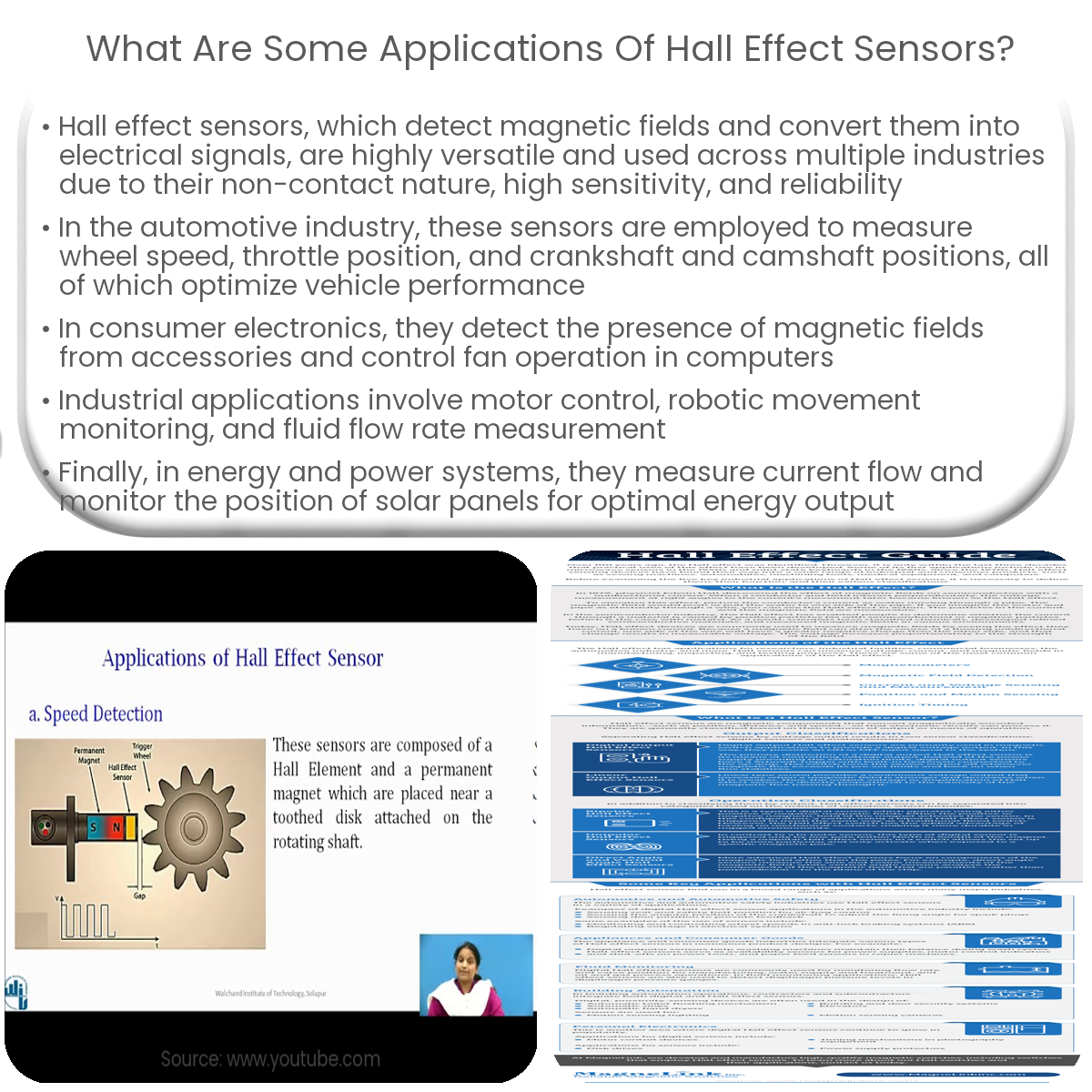Hall effect sensors are used in automotive systems, consumer electronics, industrial automation, robotics, flow meters, and energy management systems.
Applications of Hall Effect Sensors
Hall effect sensors are versatile devices that detect magnetic fields and convert them into electrical signals. They are widely used in various industries due to their non-contact nature, high sensitivity, and reliability. This article will explore some common applications of Hall effect sensors.
Automotive Industry
In the automotive industry, Hall effect sensors are used for several purposes:
- Speed sensors: They measure the speed of a vehicle’s wheels and provide feedback to the anti-lock braking system (ABS) and traction control system.
- Throttle position sensors: These sensors monitor the throttle valve’s position, allowing the engine control unit (ECU) to optimize fuel injection and ignition timing.
- Crankshaft and camshaft sensors: They measure the position and rotational speed of the engine’s crankshaft and camshaft, helping the ECU optimize engine performance and efficiency.
Consumer Electronics
Hall effect sensors are used in various consumer electronic devices, such as:
- Smartphones and tablets: They detect the presence of a magnetic field from accessories like flip covers or styluses, enabling automatic screen on/off or specific functions.
- Computers: They are used in cooling fans to measure the rotational speed and control the fan’s operation based on temperature requirements.
Industrial Applications
Industrial applications of Hall effect sensors include:
- Motor control: They provide feedback on the motor’s rotor position, enabling precise control of brushless DC and stepper motors.
- Robotics: Hall effect sensors are used to monitor the position and movement of robotic arms and joints, ensuring accurate and smooth operation.
- Flow meters: They are utilized in flow meters to detect the movement of a magnetic rotor or vane, measuring fluid flow rates.
Energy and Power Systems
In energy and power systems, Hall effect sensors play a vital role:
- Current sensing: They measure the current flow in a conductor by detecting the magnetic field generated, enabling over-current protection and load monitoring in power supplies and inverters.
- Solar tracking: They monitor the position of solar panels, ensuring they are optimally aligned with the sun to maximize energy output.
In conclusion, Hall effect sensors have a broad range of applications due to their ability to detect magnetic fields accurately and reliably. They are essential components in various industries, including automotive, consumer electronics, industrial automation, and energy systems.



